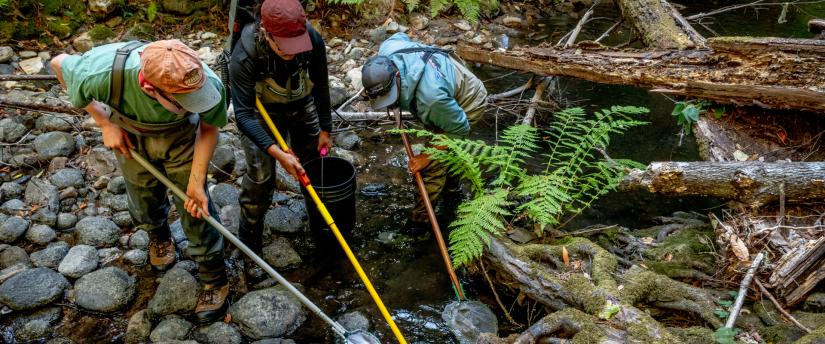
There is growing recognition that at-risk salmonid populations in coastal California are becoming increasingly vulnerable to climate change. For example, the frequency and intensity of wildfires are predicted to increase dramatically, which may significantly alter physical and ecological processes in stream ecosystems. However, the different ways wildfires impact imperiled coastal salmonid populations are unknown.
In collaboration with the Scott Creek Salmonid Research and Monitoring Program (NOAA), the team will explore whether fire will tip the balance between the energetic demands of salmonids and the amount of food supplied by the food web. Through its effects on physical habitat, wildfire could simultaneously impact both metabolic demand and food availability for rearing salmonids. If increased metabolic demand is accompanied by decreased food availability, then growth and survival are threatened via a mechanism called ‘metabolic meltdown.'
The project leverages data from a heavily-monitored watershed against a natural experiment created by a recent California wildfire to assess the consequences of fire for endangered coho salmon (Oncorhynchus kisutch) and threatened steelhead trout (Oncorhynchus mykiss), mediated through changes in physical habitat and food availability. This project addresses a large and urgent need to identify the mechanisms and magnitude by which escalating wildfire seasons along the West Coast will contribute to threats facing salmonid populations.
2022 California Sea Grant Graduate Research Fellowship Webinar Presentation - June 11, 2024